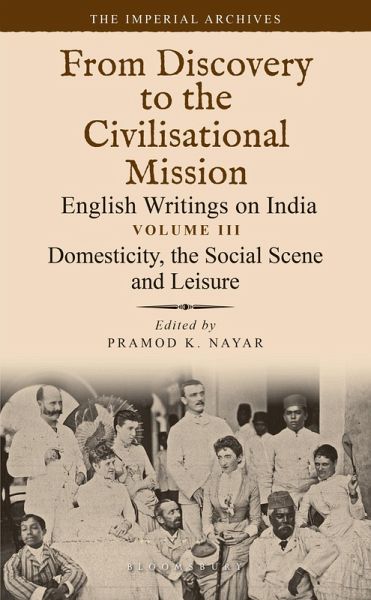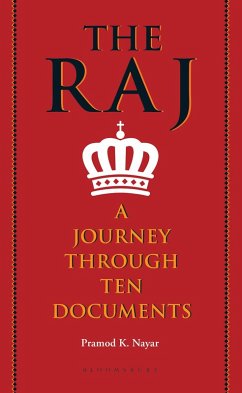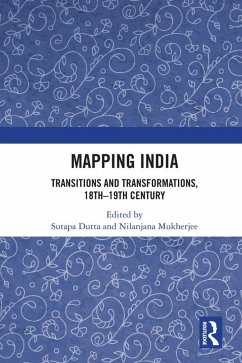
Domesticity, the Social Scene and Leisure (eBook, PDF)
From Discovery to the Civilizational Mission: English Writings on India, The Imperial Archive, Volume 3

PAYBACK Punkte
35 °P sammeln!
India and the subcontinent stimulated the curiosity of the British who came to India as traders. Each aspect of life in India - its people, customs, geography, climate, fauna and flora - was documented by British travelers, traders, administrators, soldiers to make sense to the European mind. As they 'discovered' India and occupied it, they also attempted to 'civilise' the natives. The present volumes focus on select aspects of the imperial archives: the accounts of "discovery" and exploration - fauna and flora, geography, climate - the people of the subcontinent, English domesticity and socia...
India and the subcontinent stimulated the curiosity of the British who came to India as traders. Each aspect of life in India - its people, customs, geography, climate, fauna and flora - was documented by British travelers, traders, administrators, soldiers to make sense to the European mind. As they 'discovered' India and occupied it, they also attempted to 'civilise' the natives. The present volumes focus on select aspects of the imperial archives: the accounts of "discovery" and exploration - fauna and flora, geography, climate - the people of the subcontinent, English domesticity and social life in the subcontinent, the wars and skirmishes - including the "Mutiny" of 1857-58 - and the "civilisational mission". Volume 3 Domesticity, the Social Scene and Leisure shifts the focus to the English home and social life. Domesticity, often a fraught exercise for the 'memsahib', carried on with the assistance of a retinue of Indian servants, meant tackling corruption, inefficiency and the all-pervasive social hierarchy of the colonised. Advice books were produced to aid the memsahib for this purpose. The Steel-Gardiner guide to housekeeping, which was a bestseller in its day and is excerpted here, was indispensable in the length and breadth of its coverage, from the care of children to the right wages for the servants. Diver's text, likewise, also demonstrates how running the home was difficult and has a resonance with the (male) dominion of running the Empire. These texts exhorted the English woman to practice thrift, control and managerial skills, to be aware of the natives' penchant for dirt and indolence and the caste-community dynamics that inform the servant-class.













